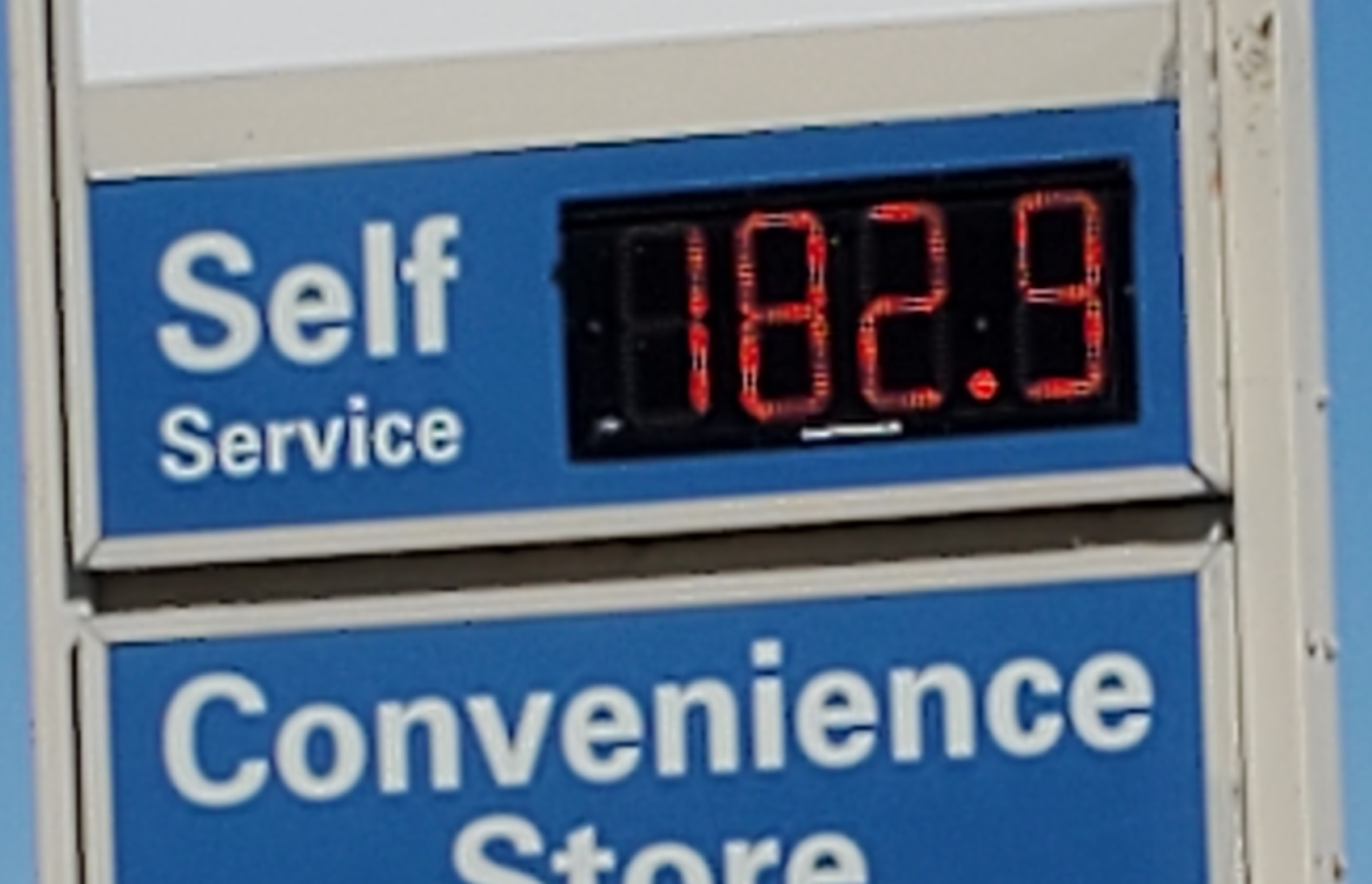As gas prices soar in B.C., MLAs for Columbia River-Revelstoke and Kootenay East feel that it is time for the provincial government to step in and make some changes.
As of Thursday, March 10th, gas prices have spiked to record highs, reaching above $2 per litre in Cranbrook.
A list of the highest gas prices in communities around the East Kootenay, according to GasBuddy.com, on March 10th follows:
- Cranbrook: 210.9 cents/litre
- Creston: 189.9 cents/litre
- Radium Hot Springs: 188.9 cents/litre
- Invermere: 186.9 cents/litre
- Kimberley: 182.9 cents/litre
- Fernie: 179.9 cents/litre
The average price for gas across B.C. is around $2.03 per litre, according to GasBuddy.
Kootenay East MLA Tom Shypitka said gas prices have long been an issue in the province.
“British Columbia has, for the last several years, had the highest gas prices in North America and now, with the war in Ukraine, it has knocked it totally out of the park,” said Shypitka. “The people of B.C. have had enough of it. This government promised to make life more affordable for British Columbians and we’ve seen our real estate market is going off the charts, our groceries and everyday essentials are sky-high, and now we’re seeing gas prices over the $2 per litre mark. It’s unacceptable.”
Shypitka said gas prices rising will, as it has before, have a broader impact on residents.
“The ripple effect from high gas prices should be no mystery, it affects everything, our supply chain, how we deliver goods, how we get around,” said Shypitka. “It’s a key economic driver, when we double our transportation costs on fuel, it’s going to mean that you’re paying more for bread, milk and everything that’s energy dependant on transportation or production.”
Doug Clovechok, MLA for Columbia River-Revelstoke, noted that the B.C. Liberals introduced the carbon tax to the province in 2008, but said it has been raised beyond reasonable levels.
“Our carbon tax was revenue-neutral, which meant all revenue from the tax was actually returned in a couple of ways,” explained Clovechok. “Fast forward to today, one of the first things they (the B.C. NDP) did immediately, was get rid of the tax neutrality. So, there are over a billion dollars of B.C. taxpayer’s money that have gone into general revenue and haven’t come back to them.”
According to Clovechok, the situation is rather complex.
“I’ve talked to the BCUC (British Columbia Utilities Commission) several times, they said they were going to have some solutions. We’re still chasing after them to find out what they’re going to do,” explained Clovechok. “The BC NDP brought in the Transparency Fuel Act in 2019, which was supposed to look at whether or not oil companies are gouging us. They did a report that said it actually was happening, but the BCUC doesn’t have any authority to enforce it.”
Shypitka feels a possible solution would be to increase B.C.’s and Canada’s oil refining capacity.
“Tripling the capacity of the Trans-Mountain pipeline would not only bring diluted bitumen for export, but it’ll also free up space for refined gasoline from Alberta to come down,” said Shypitka. “We should be freeing up pipelines, we should be bringing fuel from Alberta out to the eastern part of the country where we have a lot of refining capacity.”
Both Shypitka and Clovechok feel that the government should reduce or remove the provincial carbon tax.
“The government, through taxation, controls 54 cents per litre. If you look at Alberta and other jurisdictions in Canada, those governments are reducing their prices or taking taxes right off, based on the price of oil, to minimize the impact on families,” explained Clovechok.
Both MLAs pointed out that the B.C. NDP plan to add one cent per litre to the existing carbon tax.




